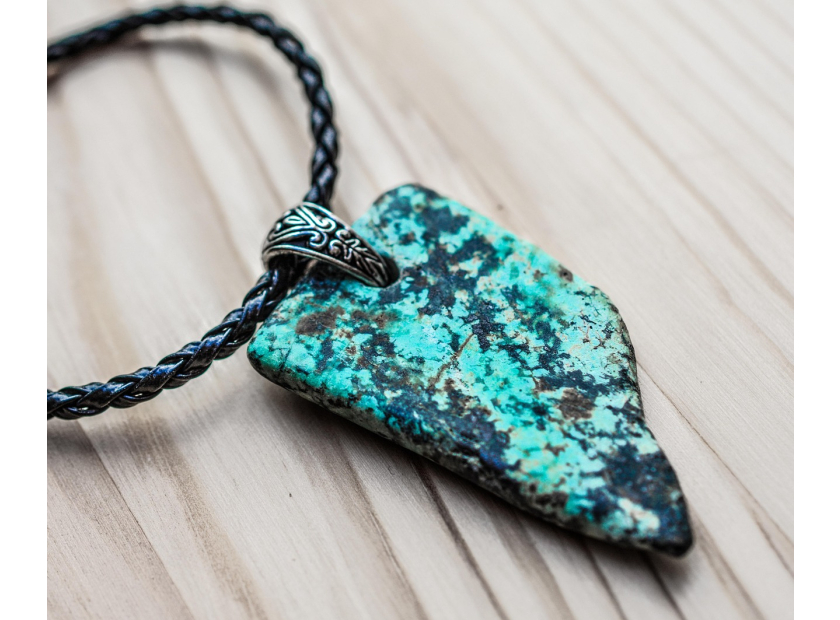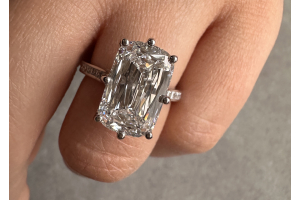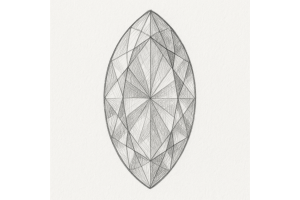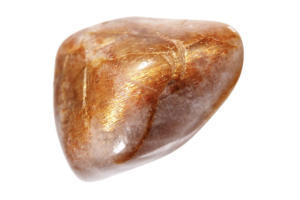GBP
/
GBP
/
Shipping to:
Currency:
What Is the Meaning Behind Birthstones? Discover Symbolism, History & Cultural Significance
Birthstones have long captivated our imagination, serving as personal emblems and cherished adornments.
But what exactly is the significance behind these colourful gems associated with our birth months?
Let's delve into the origins, meanings, and enduring allure of birthstones.
Understanding Birthstones
A birthstone is a gemstone linked to a specific month, traditionally believed to bring good luck, health, or protection to individuals born during that month.
This tradition dates back centuries and has evolved across various cultures.
A Glimpse into History
The concept of birthstones is often traced to the biblical 'Breastplate of Aaron,' described in the Book of Exodus.
This sacred garment featured twelve distinct stones, each representing one of the twelve tribes of Israel.
Over time, these stones became associated with the twelve months of the year and the zodiac signs.
By the 18th century, wearing a gemstone corresponding to one's birth month became a widespread practice.
Traditional vs. Modern Birthstones
The list of birthstones has seen variations over time.
In 1912, the American National Retail Jewellers Association standardised a list to promote consistency.
While traditional birthstones were often chosen for their astrological significance, modern selections consider factors like availability and durability.
For instance, March's traditional bloodstone has been largely replaced by aquamarine in contemporary lists.
Symbolic Meanings of Each Birthstone
Each birthstone carries its own unique symbolism:
- January – Garnet: Symbolises protection and is believed to keep the wearer safe during travel.
- February – Amethyst: Represents clarity and inner peace, historically thought to prevent intoxication.
- March – Aquamarine: Associated with calmness and courage, once believed to protect sailors at sea.
- April – Diamond: Denotes strength and eternal love, prized for its unmatched hardness and brilliance.
- May – Emerald: Symbolises rebirth and wisdom, cherished for its vibrant green hue.
- June – Pearl: Represents purity and innocence, unique as it is the only gem formed within a living creature.
- July – Ruby: Signifies vitality and passion, often associated with love and courage.
- August – Peridot: Denotes prosperity and healing, believed to ward off nightmares.
- September – Sapphire: Symbolises truth and loyalty, traditionally worn by royalty for protection.
- October – Opal: Represents creativity and spontaneity, known for its unique play-of-colour.
- November – Topaz: Signifies abundance and warmth, believed to bring joy and good fortune.
- December – Turquoise: Denotes serenity and protection, valued for its distinct blue-green colour.
Cultural and Spiritual Significance
Beyond their aesthetic appeal, birthstones have been imbued with cultural and spiritual meanings.
In Hindu tradition, the 'Navaratna' or nine gems are believed to harness cosmic energies.
Similarly, astrologers have linked specific gemstones to celestial bodies, suggesting they can influence an individual's destiny.
Choosing and Wearing Your Birthstone
Selecting a birthstone is a deeply personal choice.
While many opt for the gem associated with their birth month, others choose stones that resonate with their personal experiences or aesthetic preferences.
Birthstones are commonly set in rings, necklaces, bracelets, and earrings, making them versatile accessories suitable for daily wear or special occasions.
For those considering unique jewellery pieces, check out gemstone engagement rings for a vibrant selection.
Birthstones: More Than Just a Trend?
While some may view birthstones as a marketing endeavour by jewellers, their enduring presence across cultures and centuries suggests a deeper significance.
They serve as tangible connections to our personal histories, beliefs, and the natural world.
If you're exploring alternatives, consider reading about lab-grown diamonds vs gemstones to make an informed choice.
Exploring Alternative Birthstones
Beyond the traditional monthly assignments, there are alternative birthstone systems based on zodiac signs, days of the week, and even hours of the day.
For instance, individuals born under the sign of Leo might consider onyx as their zodiac birthstone.
For a diverse range of options, explore non-traditional engagement rings that feature unique gemstones.
Frequently Asked Questions
What is the origin of birthstones?
The tradition of birthstones is believed to originate from the biblical 'Breastplate of Aaron,' which featured twelve stones representing the tribes of Israel. Over time, these stones became associated with the months of the year and zodiac signs.
Do birthstones have healing properties?
Throughout history, many cultures have attributed healing and protective properties to birthstones. While these beliefs are largely symbolic, they add to the personal significance of the stones.
Can I wear a birthstone not associated with my birth month?
Absolutely! Many people wear stones they feel connected to, regardless of their birth month. It’s all about what resonates with you.








